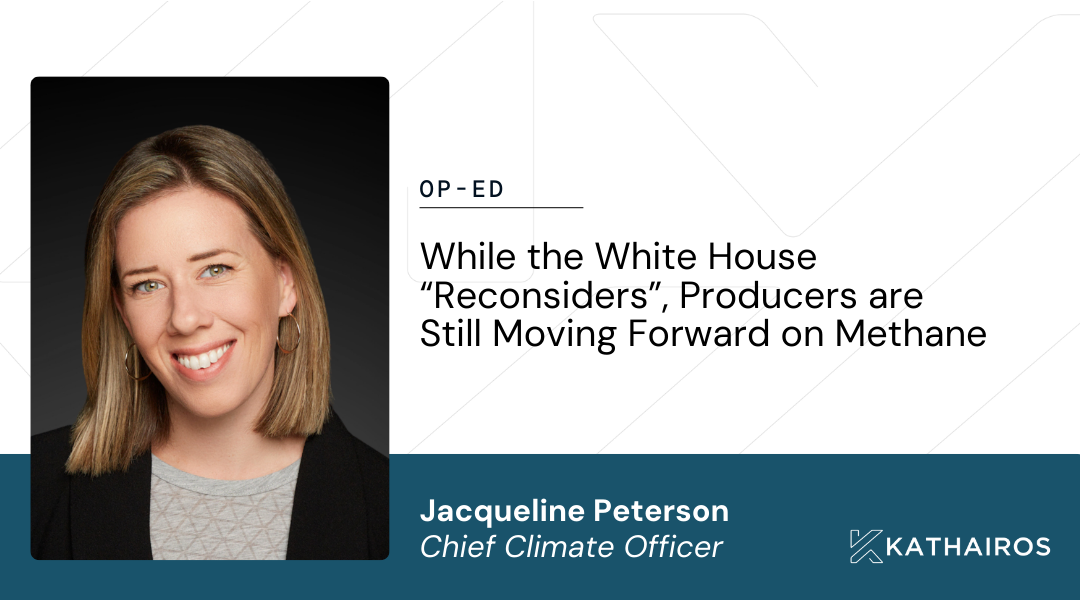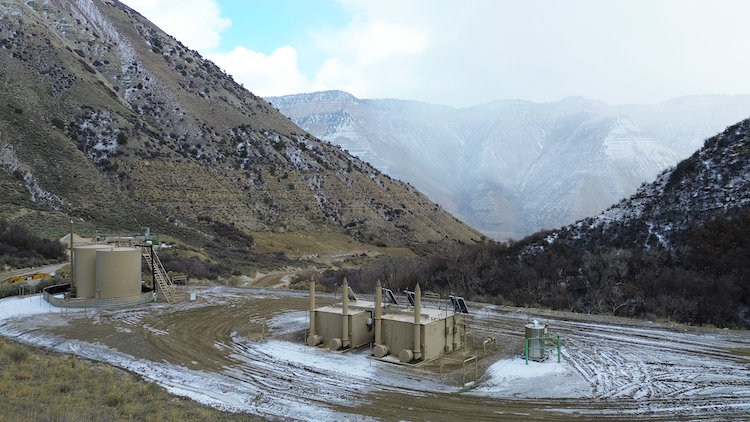
Kathairos has emerged as the leading North American solution for methane elimination from pneumatics, with more than 1,000 systems in operation across North America and over 40 major oil and gas producer partners.
In this post
The success of the global energy transition depends on numerous factors, including the subject of digitalization the risk of cyber vulnerability, geopolitics and the question of capital investment.
Energy and foreign policy decision-makers from all over the world convened at the Atlantic Council’s Global Energy Forum in Dubai on Tuesday, March 29, to discuss and consider the many factors impacting the global energy transition in great detail, outlining the main challenges facing our transition to a low-carbon global energy system.
CYBER VULNERABILITY: AN EMERGING THREAT
The energy sector alone expects over 2 billion devices to be added over the next several years, and with this influx of digital assets comes an all too familiar risk: cyber vulnerability.
Leo Simonovich, the vice president and global head of industrial cyber and digital security at Siemens Energy explained the potential consequences of cyber vulnerability during Tuesday’s panel, remarking that cybersecurity is important to consider both as an opportunity to accelerate the energy transition, but also as a source of considerable risk needing urgent attention.
Simonovich further specifies, “What we’re talking about is not just loss of data, what we’re really talking about is a safety issue, one that could bring down major parts of the grid, or, as we saw with the Colonial Pipeline attack in the United States, parts of the gas network.
THE ROLE OF GEOPOLITICS
Abdurrahman Khalidi, chief technology officer of GE Gas Power, EMEA, also noted that a global shift to a low-carbon energy system will heavily involve geopolitical considerations.
“It took the world several decades to arrive at almost a consensus in Paris, that global warming is happening and it’s due to greenhouse gases and the commitments started flowing,” Khalidi said. “It took us a lot of debate.”
Khalidi’s statement refers to the Paris Agreement that was adopted in 2015, which aims to limit global warming to well below 2 (and ideally to 1.5) degrees Celsius, compared to pre-industrial levels. Khalidi’s statement stresses the importance of cooperative and collaborative world governments, and sees a potential issue with sharp polarization among different nations, as well as a strong culture of ‘us against them’ developing worldwide.
This statement comes at a time when Russia’s invasion of Ukraine has highlighted the economic dependence of many nations on Russian oil and gas, but has also highlighted several initiatives hallmarked by cooperation and shared objectives.
For example, the United States and European Commission recently issued a statement on energy security, announcing a joint task force to deal with the energy crisis.
INVESTING IN A LOW-CARBON FUTURE
Any meaningful attempts to transition to a global energy system centered around low-carbon technologies, cleantech and renewables will require a significant amount of capital to gain ground.
Tuesday’s panel also addressed the issue of whether this cash should come through investments, tackled by Kara Mangone, the global head of climate strategy at Goldman Sachs. Among other things, she outlined the importance of integration and commercial viability.
“Our research estimates that it’s going to take anywhere from 100 to 150 trillion dollars in capital, about 3 to 5 trillion a year— just an astronomical amount, we’re nowhere near that today— to deliver on the goals that were set forth in the Paris Agreement,” Mangone explained.
Mangone estimates that around half of this capital would need to be focused on technologies that were already at a commercial scale, while the rest would need to go into carbon capture, hydrogen fuels, direct air capture, sustainable aviation fuels and e-fuels, or otherwise technologies that are not yet being adopted at a commercial scale due to not being economically feasible for a lot of companies.
The trillion-dollar figures referenced by Mangone are from a report entitled “Climate Finance Markets and the Real Economy” published in late 2020. Goldman Sachs joined the Global Financial Markets Association Climate Finance Working Group to help inform the report.
Mangone continued by outlining how climate targets could be achieved in a commercially viable way.
“We cannot pull out financing from […] the oil and gas sector, metals and mining, real estate, agriculture— these sectors that are really crucial to transition, that actually need the capital, that need the support to be able to execute on that.”
This follows comments made earlier in the week by Anna Shpitsberg, the deputy assistant secretary for energy transformation at the United States Department of State.
“The oil and gas industry is critical to the transition,” Shpitsberg said. “They are key players in the energy system. They are the ones that will be pushing abatement options, they are the ones that will be pushing hydrogen options. And to be quite honest, they’re some of the ones that are putting significant investment into clean energy.”
Shpitsberg argued that engaging these “critical stakeholders” will be crucial in meeting methane reduction and efficiency goals.
“The messaging has been that oil and gas companies have to be a part of the conversation. But we want them also to be a part of the conversation on the transition.”
Explore more posts from Kathairos
.jpg)
Decarb Digest, Issue 01: Discover Why Energy Leaders Aren’t Waiting on Washington

Op-Ed: While the White House “reconsiders”, producers are still moving forward on methane

